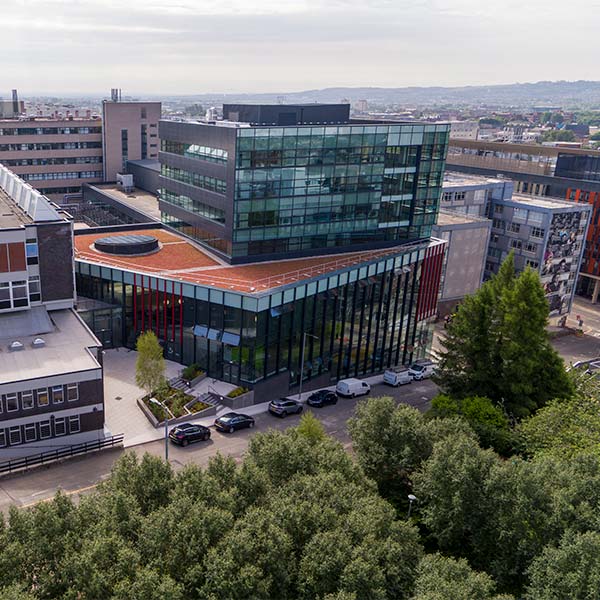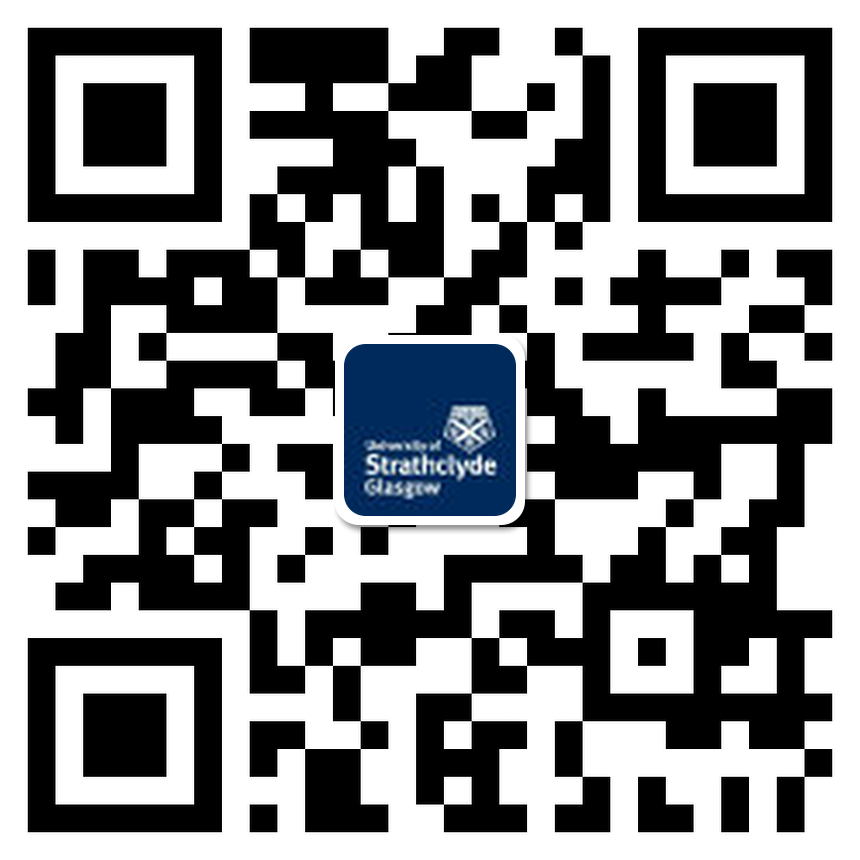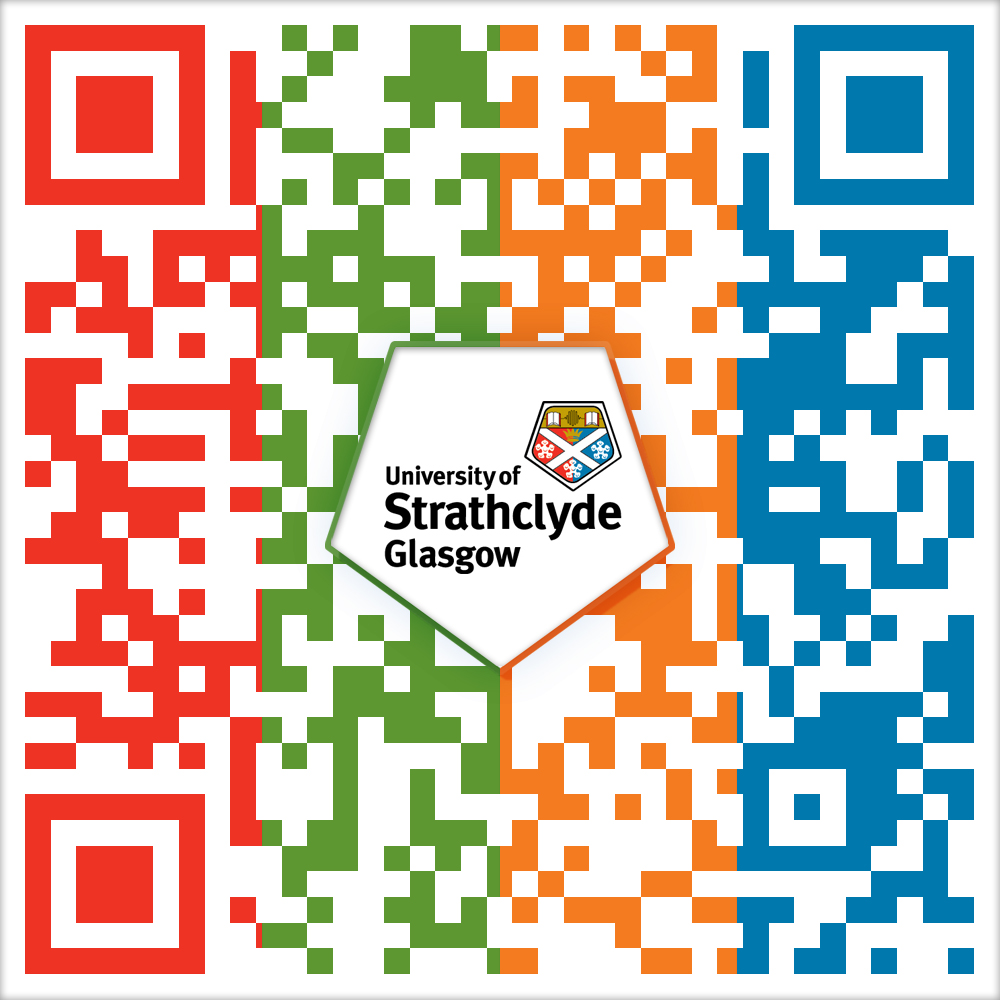BSc Hons Computer Science (BITZH)
ApplyKey facts
- Study mode and duration: 4 years full-time (two years at BITZH & two years at University of Strathclyde)
Apply: Available only to eligible students from Beijing Institute of Technology, Zhuhai (BITZH)
Scholarship: 15% tuition fee scholarship whilst studying at the University of Strathclyde
Study with us
- become part of our University community which is home to over 30,000 students from more than 140 countries
- join Strathclyde in year three and graduate with a degree in Computer Science after two years
- develop an in-depth understanding of computer science required to develop sophisticated computing systems
- acquire excellent practical skills alongside theoretical understanding to maximise your career options
- benefit from undertaking industry-linked projects
- gain analytical, design and communication skills and the ability to work as part of a team
The Place of Useful Learning
UK University of the Year
Daily Mail University of the Year Awards 2026
Scottish University of the Year
The Sunday Times' Good University Guide 2026
Why this course?
Computer science demands and develops a challenging mix of skills and abilities. These include a deep understanding of the technology, creativity and imagination, logic and attention to detail, strong analytic and design skills combined with excellent communication skills and the ability to work as part of a team.
Our graduates not only understand new technologies but are able to influence their development. Our BSc Hons Computer Science has strong practical and theoretical foundations.
What you’ll study
On our BSc Hons Computer Science degree you’ll learn foundation skills such as programming and gain knowledge in a range of topics including algorithms, databases and logic.
In Year 3, you’ll study more specialised areas and undertake six compulsory modules which include functional programming, mobile app development and foundations of artificial intelligence.
In Year 4, you will undertake an individual practical computing project, as well as a compulsory module, computer security. In addition to the compulsory modules you will select four elective modules and options include project management, advanced functional programming and human centred security.
Major projects
Several companies work with us to develop student projects, either individual or group final-year projects that are suitable for both parties.
Projects are supervised by members of academic staff with individuals from the sponsoring organisation providing occasional advice and feedback.

Why Strathclyde?
Strathclyde is a multi-award-winning university.
We offer a flexible, innovative learning environment, where you’ll enjoy a first-class experience. We're currently transforming our campus, with investment set to reach £1 billion by 2025. This includes a new Learning & Teaching hub which will further enhance the learning environment for our students. The campus also has a dedicated sports facility, Strathclyde Sport, which offers a range of sports and wellbeing facilities.
Our campus is located in the city centre of Glasgow, Scotland’s largest and most vibrant city. The National Geographic named Glasgow as one of its 'Best of the World' destinations, while Rough Guide readers voted Glasgow the world’s friendliest city!
Glasgow is also the gateway to Scotland, with an international airport and excellent travel links to explore and visit Scotland’s most scenic locations including the Scottish Highlands and Scotland’s capital city Edinburgh, during your time studying at Strathclyde.

Chat to a student ambassador
Want to know more about what it’s like to be a Science student at the University of Strathclyde? A selection of our current students are here to help!
Our Unibuddy ambassadors can answer all your questions about courses and studying at Strathclyde and offer insight into their experiences of life in Glasgow and Scotland.
Compulsory modules
You’ll study more specialised areas such as communications, artificial intelligence, and the technologies behind mobile and web-based applications. You’ll also take part in a large group-based software development project.
Building Software Systems (20 credits)
This module will extend and deepen your understanding of the analysis, design and implementation of software systems; to provide further experience in the activity of designing and implementing non-trivial systems; and to enable you to demonstrate practical competence in a group environment.
Your goal is the development in a group setting of significant systems from scratch aiming not just at any solution but a good solution, and to be introduced to more general Software Engineering topics.
Functional Programming (20 credits)
The module aims to provide you with skills in basic functional programming and experience in integrated deployment of those skills.
Web Applications Development (20 credits)
This module will give you an understanding of the technologies used in the development of N-tier Internet-based applications.
Semester 2
Computer Systems & Concurrency (20 credits)
This module will allow you to develop a deeper understanding of highly concurrent hardware and software systems. The module will also further your knowledge of the need for, and the design and implementation of, those other vital hardware and software components of a concurrent system, namely multiprocessors and their interconnections, operating systems and networks.
The interactions between many of these components will be investigated by means of significant practical work that consolidates the lecture content in the context of: (i) multiprocessor architectures, (ii) concurrency, (iii) protection and security and (iv) networked and concurrent applications. Software developed in appropriate programming languages will form the basis of much of the practical work thus enabling the student to enhance their software design and implementation skills in this domain.
Mobile App Development (20 credits)
The module will provide you with a good understanding of the issues in developing for mobile environments, approaches to handling these issues and skills in developing for a widespread mobile platform.
Foundations of Artificial Intelligence (20 credits)
This module will help to give you a broad appreciation of the scale and nature of the problems within Artificial Intelligence and to a detailed understanding of some of the fundamental techniques used to address those problems.
Compulsory modules
Semester 1 & 2
Individual Project (40 credits)
This module will allow you to demonstrate practical and documentary competence. You'll also be expected to give a demonstration of your work.
Semester 1
Computer Security (20 credits)
The aim of this module is to provide you with the opportunity to develop a security mind-set by introducing you to core material in the area of computer security. This should enable you to identify potential threats and vulnerabilities for a range of situations, and propose appropriate actions to mitigate these issues.
Elective modules
In fourth year, in addition to the compulsory modules, you will take three modules chosen from the options below.
Semester 1
Project Management
This module will familiarise you with the basic concepts associated with project management. It is designed around seven main areas:
- Project Management Basics
- Setting Objectives and Defining Project Deliverables
- Work Breakdown, Structures and Milestones
- Project Planning
- Project Finance
- Risk Management
- Project Strategies
These areas will provide you with a general understanding of project management that will complement your studies in other areas of the course, such as management finance and strategy, where the execution of company strategy may require the use of project management techniques.
Software Architecture & Design (20 credits)
This module aims to:
- enable you to understand the challenges of advanced software design and the issues associated with large-scale software architectures, frameworks, patterns and components
- develop your understanding of the tools and techniques that may be used for the automatic analysis and evaluation of software
Semester 2
Advanced Functional Programming (20 credits)
This module will provide you with further skills in functional programming and an appreciation of the mathematical structures which underpin powerful general programming concepts and techniques.
Theory of Computation (20 credits)
Building on the previous material in software development, you'll extend and formalise your abilities in the area of computational complexity.
Information Access & Mining (20 credits)
This module will allow you to understand the fundamentals of information access and information mining. The module will cover a range of techniques for extracting information from textual and non-textual resources, modelling the information content of resources, detecting patterns within information resources and making use of these patterns.
Human Centred Security (20 credits)
This module will focus on making you more aware of human-centred security design.
Learning & teaching
Learning and teaching methods aim to help you gain knowledge and understanding as well as the development of intellectual skills (problem-solving and critical evaluation skills), practical skills (designing and implementing a software system, team-working skills) and transferable skills (investigative skills, presentation skills, report-writing skills, time management skills, independent learning skills).
Knowledge and understanding are gained through lectures and supported in tutorials or laboratories, and individual and group project work. You’ll be encouraged to read and research independently to help broaden your understanding of the subject.
You’ll develop intellectual skills through weekly laboratory or tutorial exercises. You’ll be set challenging problems while further coursework and group and individual projects will help you enhance your skills.
You’ll learn practical skills through lectures, tutorials, laboratory, coursework and project work.
Assessment
Your knowledge and understanding, intellectual, practical and transferable skills are tested through unseen written exams, laboratory submissions, coursework and project reports and presentations.
Chinese students studying at Strathclyde
The Department of Computer & Information Science offer a strong support network to new students. The Chinese Students & Scholars Association at Strath Union also offers the opportunity to meet students who study in other departments, through their regular social events and opportunities to go on trips to other areas of Scotland.
Accommodation
We provide secure accommodation on campus for eligible students. Our accommodation is close to the main University buildings, library, computer labs, sports facilities and the Students’ Union.
Our dedicated Accommodation Services team are located in the campus village, and the Student Village Reception is open 24 hours every day, with the experienced team always available to help you.
Destination Scotland
From our home in the heart of Glasgow, Strathclyde is just a few hours (or less!) from some of Scotland's most scenic and historic locations.
Entry requirements
| Academic requirements | This degree programme is only available to eligible students from Beijing Institute of Technology, Zhuhai (BITZH) following satisfactory completion of two years of study on the Computer Science and Technology programme, with an average of 70% over years 1 and 2, with no results lower than 60%. |
|---|---|
| English language requirements | A minimum overall English language proficiency score of IELTS 6.0 (with no score below 5.5) is required. We also accept alternative English language qualifications, please contact us for further information. If you need additional support to meet our English language conditions, you may wish to consider our Pre-sessional courses in English. If you already meet our English language requirements and wish to undertake pre-sessional English classes, you can register for our three-week Online Module 3, which takes place between August and September. This is free of charge if you go on to register on the BSc (Hons) Computer Science degree. |
Fees & funding
Fees may be subject to updates to maintain accuracy. Tuition fees will be notified in your offer letter.
All fees are in £ sterling, unless otherwise stated, and may be subject to revision.
Annual revision of fees
Students on programmes of study of more than one year (or studying standalone modules) should be aware that the majority of fees will increase annually.
The University will take a range of factors into account, including, but not limited to, UK inflation, changes in delivery costs and changes in Scottish and/or UK Government funding. Changes in fees will be published on the University website in October each year for the following year of study and any annual increase will be capped at a maximum of 10% per year. This cap will apply to fees from 2026/27 onwards, which will not increase by more than 10% from the previous year for continuing students.
| International | £28,600 |
|---|---|
| Additional costs | There is no charge for lecture notes or equipment. Students are supplied with 500 free print units - but must purchase any additional units. However, most coursework is submitted electronically. Books are recommended, but not a compulsory purchase and where possible online versions of textbooks are available. |
| Visa and immigration | International students may have associated visa and immigration costs. Please see student visa guidance for more information. |
| Scholarship | All students will receive a 15% tuition fee scholarship. |
Please note: All fees shown are annual and may be subject to an increase each year. Find out more about fees.
Careers
Demand for our computer science graduates is high and employment opportunities are varied, with good earning potential. You can choose from a career in, for example, software development, consultancy and business analysis, amongst many other options.
Career opportunities are not limited to technology. The problem solving, creative and personal skills, you’ll develop are of benefit in their own right and much sought after by employers in other industries.
Careers Service
Our Careers Service provides career information, advice and guidance to help our students and graduates achieve their career goals. Support is also provided to graduates up to five years after graduation. The Careers Service team regularly host on-campus seminars and events which provide opportunities for students and graduates to network with employers and industry professionals.
International students
We've a thriving international community with students coming here to study from over 140 countries across the world. Find out all you need to know about studying in Glasgow at Strathclyde and hear from students about their experiences.

Apply
This degree programme is only available to eligible students following two years of study of Computer Science and Technology at Beijing Institute of Technology, Zhuhai (BITZH).
Start date: Sep 2026
(3 year entry)
Glasgow is Scotland's biggest & most cosmopolitan city
Our campus is based right in the very heart of Glasgow. We're in the city centre, next to the Merchant City, both of which are great locations for sightseeing, shopping and socialising alongside your studies.
Find us on social media

Weibo: @英国思克莱德大学

Wechat: Uni_of_Strathclyde

Red
Red: 英国思克莱德大学

